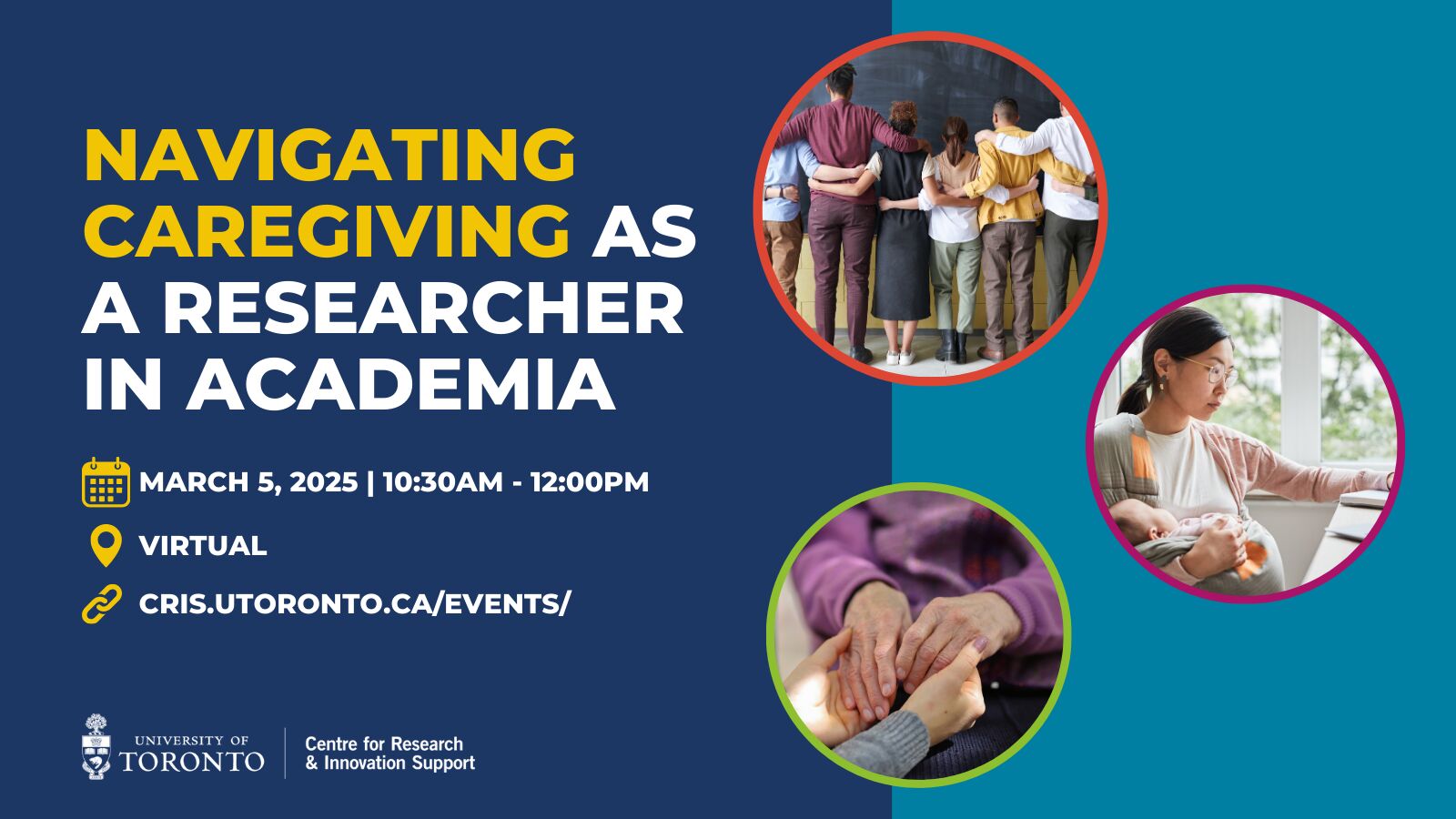
- This event has passed.
Navigating Caregiving as a Researcher in Academia – March 5, 2025
Session Description
March 5 2025 @ 10:30 am - 12:00 pm
This workshop, the first in a series focused on enhancing leadership and personal effectiveness for researchers, explores the intersection of caregiving and academic research.
Designed for researchers who are caregivers or work with staff, students, or trainees who identify as caregivers, the session will offer practical strategies for balancing caregiving responsibilities with professional demands. It will also provide insights into advocating for oneself and others while maintaining personal well-being in the face of academic pressures.
The session includes a 45-minute panel, where researchers and caregivers share strategies for navigating caregiving roles within research, followed by a 45-minute workshop opportunity for participants to collaborate and develop actionable solutions to support caregiving researchers. The strategies generated will be compiled into resources for the broader University of Toronto community.
Join us for this opportunity to share experiences, gain valuable insights, and create practical solutions for supporting caregiving researchers in academia.
Panelists:
- Monica Parry, Professor, Lawrence Bloomberg Faculty of Nursing
- Hilary Brown, Associate Professor, Department of Health & Society, UTSC
- Ron Buliung, Professor, Department of Geography, Geomatics and Environment, UTM
Learning Objectives
- Develop strategies for individuals to balance caregiving responsibilities with academic research duties, including time management, setting boundaries, and utilizing institutional resources.
- Identify practices for supporting caregiving within academic teams, with a focus on mental health, stress management, and fostering inclusive team dynamics.
- Understand and navigate caregiving-related policies (e.g., parental leave, caregiving accommodations) and learn how to advocate for better support for yourself, or others, within the research environment.
- Collaborate with peers to co-create actionable solutions for supporting caregivers in academia, including tailored strategies for various caregiving roles (e.g., parental leave, elder care).
Additional Information
The video for this session is available to watch in the video library, linked here.


